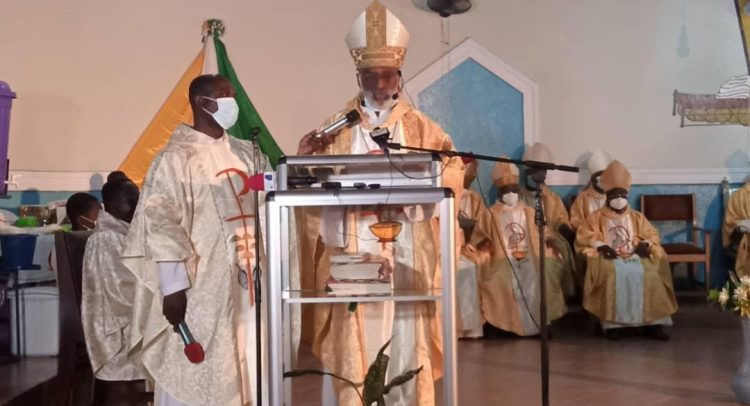The Ghana Catholic Bishops’ Conference (GCBC) has observed that the nomination and confirmation of Metropolitan, Municipal and District Chief Executives (MMDCEs) over the years have brought to the fore the deep-rooted culture of bribery and corruption in the country’s governance system.
The GCBC, therefore, called for a return to the proposal for a Constitutional Amendment to elect the MMDCEs to bring an end to this canker, which is threatening the foundation of democracy in the country.
The GCBC observed in a communiqué issued and signed by Most Rev. Philip Naameh, the Metropolitan Archbishop of Tamale and the President of the GCBC, and delivered at a mass service by Most Rev. Charles Gabriel Palmer-Buckle, Archbishop of Cape Coast and Vice President of the GCBC, at the close of the Annual Plenary Assembly held in Wa.
The communiqué noted that decentralization, which seeks to promote an effective Local Government System, was the way to bring governance and its benefits to the people and improve the participation of citizens in the governance process.
It indicated that decentralization enhanced democracy at the grassroots level and promoted inclusiveness and accountability, thereby bringing nobility into the governance architecture.
The communiqué acknowledged the efforts Government was making to dialogue and collaborate with religious bodies on matters of national interest.
It reiterated the Bishops’ passionate appeal to the government to hasten the process towards signing the Memorandum of Understanding (MoU) on Education between Government and Religious Bodies as well as other Units on the partnership in education delivery in Ghana.
The Bishops commended the government for the introduction and implementation of the free Senior High School (SHS) Programme, admitting that the programme had remarkably increased enrolment and access to secondary and tertiary education.
Nonetheless, it acknowledged that there were some significant challenges, including overcrowding in some of the schools, uncertainty about the school calendar, challenges with school feeding and the Computer School Selection and Placement System (CSSPS), which needed to be addressed to ensure smooth implementation of the programme.
The Communiqué also sympathized with victims of the tidal waves in some communities in the Volta Region and the coast of Ada and prayed for protection for them in the moment of vulnerability.
“We also wish to entreat the government to put in place the necessary measures to alleviate the sufferings of the people affected as they look for the necessary resources to construct the second phase of the Keta Sea Defence Wall,” it appealed.
The communiqué also commended the media for its role in informing and educating the populace as well as deepening democracy in the country.
It, however, called on the media to uphold the highest journalistic values and ethics in their reportage, noting that information must be verified and facts professionally ascertained to ensure objectivity in what was being published.
“The rate at which our media space has been inundated with distorted reports and fake news is cause for grave concern and the relevant authorities must make the effort to change this trend,” it noted.
The GCBC Annual Plenary Assembly (2021) was on the theme: “Fratelli Tutti and COVID-19: Pastoral Opportunities and Challenges in Ghana”.
GNA


